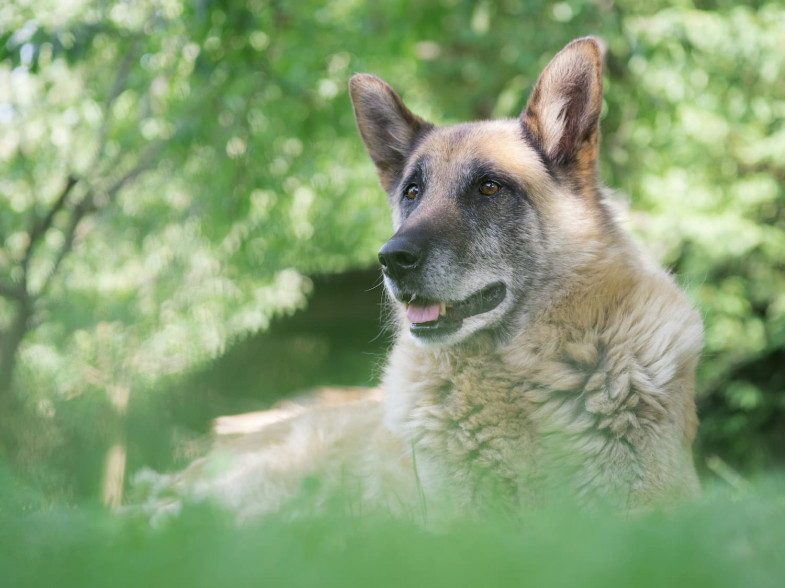Turner Veterinary Clinic News
It's National Pet Dental Health Month
The American Veterinary Medical Association declared February as National Pet Dental Health Month several years ago to underscore the importance of oral healthcare. Did you know that up to 80 percent of dogs and 70 percent of cats develop periodontal disease by the time they are three years old? This is alarming because untreated periodontal disease can cause infection by spreading to other areas of the body. It can also cause your pet to lose teeth, making it more difficult for him to chew food and get the nutrition he needs to remain healthy.
Preventing Dental Disease in Dogs and Cats
Proper brushing and regular dental exams are one key to your pet’s oral health. The other is providing her with nutritious, species-appropriate food. The best pet foods have little or no added fillers. Additionally, they contain enough meat and protein to provide energy. Dental chews for dogs can help reduce plaque and tartar, but you should not give one to your dog in place of regular brushing. The toothbrush and toothpaste you buy should also be species-specific.
To brush your pet’s teeth, have him sit in a relaxed position and then follow these steps:
- Massage the cheeks for several seconds
- Introduce toothpaste by placing a small dab on your finger or a treat and allow her to lick it off
- Place a small amount of toothpaste on a toothbrush and place in your pet’s mouth without brushing
- When your pet appears comfortable with the process, brush the surface of one tooth at a time
- Retract the lips so you can reach the back molars
- Concentrate on the upper and outer molars if your pet only tolerates brushing for a short time
- Gradually increase total brushing time from a few seconds to two minutes
Be sure to praise your pet for any cooperation that you get. Eventually, she will come to accept toothbrushing as part of the daily routine.
When to Schedule an Immediate Appointment
Please contact Turner Veterinary Clinic right away if you notice any of these symptoms:
- Bleeding, red, or swollen gums
- Bad breath
- Drooling more than usual
- Hesitancy to eat
- Brown or yellow deposits on the teeth
These symptoms could indicate that your pet has an infection or another dental issue requiring prompt treatment.
Dr. Huelsbergen checks the condition of your pet’s teeth and gums at every preventive care appointment. He will recommend scheduling a follow-up appointment for any noted concerns.
Categories
Recent Posts

February is often associated with love, thanks to Valentine’s Day, and that makes it a perfect time to show extra care to the pets who mean so much to us. While treats and cuddles are always appreciated, one of the most meaningful ways to support your pet is by focusing on their health from the inside out. Dental health and heart health may seem like separate topics, but they are closely connected and both play a major role in your pet’s overall wellness.

When was the last time your pet saw the veterinarian for a checkup, not because they were sick, but just to stay healthy? Preventive care is one of the most important ways to give your pet a longer, happier life. It’s not about doing one big thing. It’s about the small, consistent steps that help avoid bigger health problems later on.

The holidays are full of sparkle, laughter, travel, and to-do lists a mile long. As joyful as this season can be, it often means busier schedules and less time for everyday routines. In the middle of the holiday rush, it's easy to overlook one very important family member: your pet.

If you're lucky enough to have a senior pet, you know just how special that bond becomes over time. From cozy afternoons on the couch to the look in their eyes that says, "I've known you forever," there’s a deep and quiet understanding between you. As pets get older, though, their needs change. Aging isn’t a disease, but it does require us to adapt how we care for our beloved companions.
The good news? With the right care and attention, senior pets can enjoy happy, healthy golden years. Here are seven simple but meaningful health tips to help your older dog or cat feel their best.

Has your dog seemed a little more reserved lately, or is your cat less interested in playing with their favorite toys? It can be easy to attribute these changes to aging or mood, but pets are experts at hiding discomfort. The good news is that there are plenty of subtle signals that can provide clues that your pet may be experiencing pain, and many treatment options to help alleviate this discomfort.